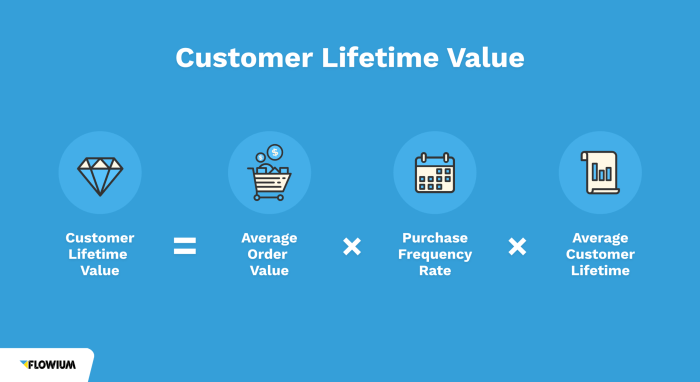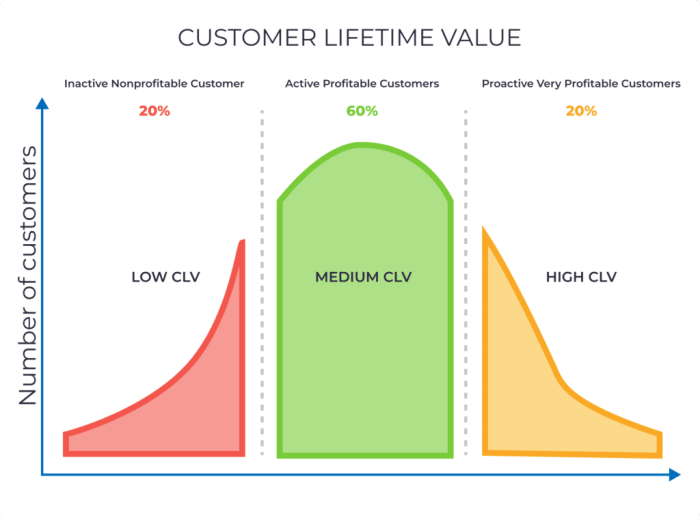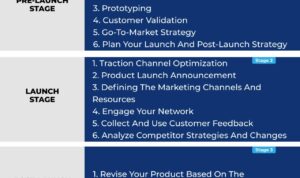Understanding Lifetime Customer Value takes center stage, inviting readers into a world of business knowledge with a fresh and engaging twist. Get ready to dive deep into the realm of customer value and its impact on business success.
Introduction to Lifetime Customer Value

Lifetime Customer Value (LCV) is the prediction of the net profit attributed to the entire future relationship with a customer. It is crucial for businesses as it helps in understanding the long-term value each customer brings to the company.
By calculating LCV, businesses can tailor their marketing strategies to focus on retaining high-value customers, maximizing revenue, and enhancing customer satisfaction.
Importance of Lifetime Customer Value
- LCV provides insights into the profitability of different customer segments.
- Helps in allocating resources efficiently by focusing on high-value customers.
- Allows businesses to forecast future revenue and plan marketing strategies accordingly.
Examples of Impact on Marketing Strategies
-
Acquiring a new customer can cost five times more than retaining an existing one.
Thus, businesses can use LCV to prioritize customer retention strategies over acquisition.
- By identifying high LCV customers, companies can offer personalized marketing campaigns to increase customer loyalty and lifetime value.
- LCV calculations can help in setting appropriate pricing strategies to maximize revenue from long-term customers.
Calculating Lifetime Customer Value: Understanding Lifetime Customer Value
Lifetime Customer Value (LCV) is a crucial metric for businesses to understand the total revenue a customer will bring over their entire relationship with the company. Calculating LCV allows businesses to make informed decisions on marketing strategies, customer retention efforts, and overall business growth.
Formula for Calculating LCV
Lifetime Customer Value = Average Purchase Value x Average Purchase Frequency x Customer Lifespan
- Average Purchase Value: This is the average amount of money a customer spends on each purchase.
- Average Purchase Frequency: This represents how often a customer makes a purchase within a given time period.
- Customer Lifespan: The average length of time a customer continues to purchase from the business.
Methods to Calculate LCV
- Historical Data Analysis: Businesses can analyze past customer behavior to predict future purchasing patterns and calculate LCV.
- Cohort Analysis: Grouping customers based on specific characteristics to understand their purchasing behavior and calculate LCV for each segment.
- Predictive Modeling: Using statistical models and algorithms to forecast future customer behavior and estimate LCV accurately.
Significance of Accurate LCV Calculations
Accurate LCV calculations are essential for businesses to:
- Allocate marketing budgets effectively by focusing on customers with high LCV.
- Improve customer retention strategies to maximize long-term profitability.
- Identify opportunities for upselling and cross-selling to increase customer lifetime value.
Factors Influencing Lifetime Customer Value

Customer lifetime value (LCV) is influenced by various factors that businesses need to consider in order to maximize their revenue potential and build long-lasting relationships with customers. These factors include customer behavior, demographics, purchase history, customer loyalty, and retention.
Customer Behavior
Customer behavior plays a significant role in determining LCV. Understanding how customers interact with your products or services, their preferences, and their buying patterns can help businesses tailor their marketing strategies to increase customer retention and loyalty.
Demographics, Understanding Lifetime Customer Value
Demographics such as age, gender, income level, and location can impact LCV. Different demographic groups may have varying needs and preferences, which businesses should take into account when developing personalized marketing campaigns to enhance customer engagement and increase LCV.
Purchase History
Analyzing customers’ purchase history can provide valuable insights into their buying habits, frequency of purchases, and average order value. By leveraging this data, businesses can create targeted promotions, loyalty programs, and cross-selling opportunities to boost LCV and encourage repeat purchases.
Customer Loyalty and Retention
Customer loyalty and retention are essential for increasing LCV. Loyal customers are more likely to make repeat purchases, refer friends and family, and engage with the brand on a consistent basis. By focusing on building strong relationships with existing customers and providing exceptional customer service, businesses can drive long-term profitability and sustainable growth.
Enhancing Lifetime Customer Value
To enhance Lifetime Customer Value (LCV) for a business, it is crucial to focus on building strong relationships with customers and providing exceptional value throughout their journey with the company. This involves implementing strategies that go beyond just making a one-time sale and instead aim to create long-term loyalty and repeat business.
Role of Customer Experience
Customer experience plays a vital role in maximizing LCV as it directly impacts how customers perceive a brand and whether they choose to remain loyal. By providing a seamless and personalized experience at every touchpoint, businesses can increase customer satisfaction, encourage repeat purchases, and ultimately boost LCV. Investing in customer service, improving product quality, and listening to customer feedback are all essential components of enhancing the overall customer experience.
Personalized Marketing Impact
Personalized marketing can have a significant positive impact on LCV by tailoring messaging and offers to individual customer preferences and behaviors. By leveraging data and analytics to understand customer needs and interests, businesses can create targeted marketing campaigns that resonate with customers on a personal level. This not only increases the likelihood of conversion but also fosters a deeper connection with the brand, leading to higher customer retention rates and ultimately, a higher LCV.












